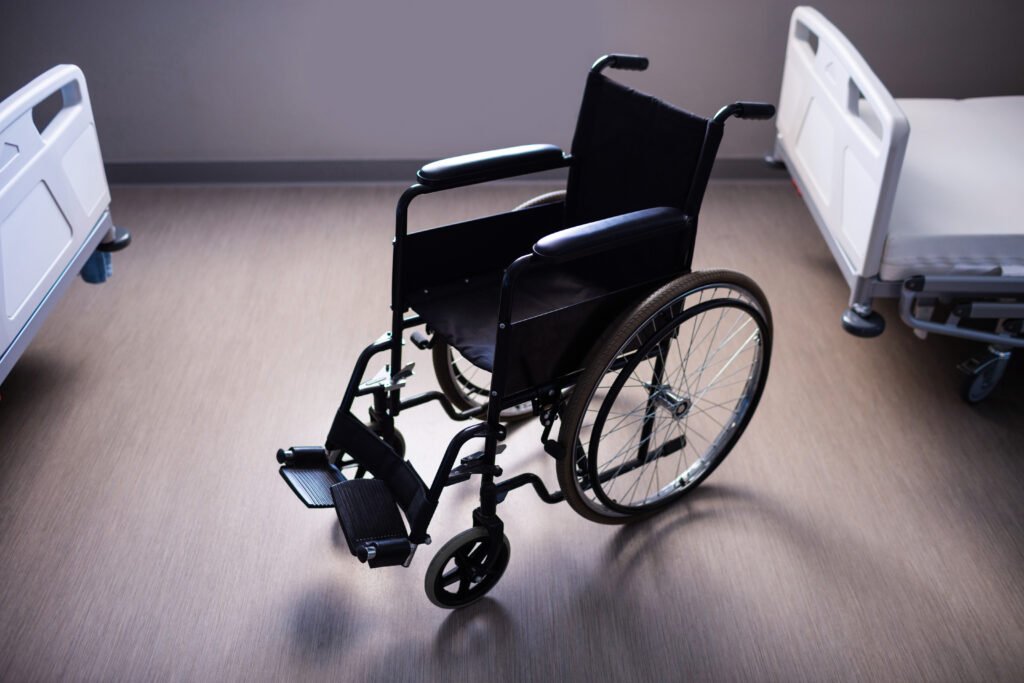Last Updated on June 30, 2025 by Julian Espinosa
For seniors and retirees, home is more than just a structure—it’s a sanctuary filled with cherished memories and a lifetime of achievements. However, this haven can also face unexpected perils, from weather disasters to theft, threatening both your physical safety and financial security.
Senior home insurance offers essential protection tailored specifically to the unique needs of older adults, safeguarding their homes, possessions, and peace of mind. This specialized coverage ensures that you can enjoy your retirement years confidently, knowing you’re protected against life’s uncertainties.
Are you ready to discover how the right insurance policy can preserve your treasured home and the memories it holds? Join us as we explore everything you need to know about securing comprehensive protection for your most valuable asset.
The Risks of Not Having Senior Home Insurance
When navigating the golden years, securing your home with senior home insurance becomes not just a matter of choice but of necessity. You’re playing dice with your family’s or property’s safety when not considering any coverage for them.
Let’s explore the risks associated with foregoing this essential coverage.
Prefer to listen rather than read?
Loss of Personal Belongings
Senior home insurance plays a crucial role in protecting your cherished possessions. Imagine that collection of family heirlooms passed down through generations, or the special mementos that tell your life story. If a fire occurs or a break-in happens, without proper insurance, you’re left to replace these irreplaceable items entirely on your own.
The financial burden of replacing belongings accumulated over a lifetime can be overwhelming, especially on a fixed retirement income.
Property Damage
Homes without adequate insurance are vulnerable to the unpredictable forces of nature and other hazards. Whether it’s damage from severe weather events, burst pipes in winter, or unexpected disasters, the financial impact can be substantial.
Senior home insurance provides a safety net, covering repairs and replacements, thus shielding you from potentially devastating out-of-pocket expenses that could deplete your retirement savings.
Financial Strain from Legal Liability
Have you considered what might happen if someone were injured on your property? The risk of legal liability is a significant concern for homeowners. If someone were injured on your property, the financial repercussions without senior home insurance could be severe.
This insurance provides crucial liability coverage, helping to manage legal costs and potential compensation, safeguarding your savings and retirement funds from unexpected claims.
Unexpected Expenses
Life is unpredictable, and unexpected expenses can arise at any time, particularly with home ownership. Senior home insurance is pivotal in providing a buffer against unforeseen costs. From minor repairs to major rebuilds after a disaster, having the right coverage means these incidents won’t derail your financial security during retirement, when your income may be limited and more rigid.
Comprehensive senior home insurance leads to more than just immediate protection—it provides significant peace of mind and financial security. It’s not merely about safeguarding against current risks but about ensuring a stable, worry-free future for yourself and your loved ones.

Benefits of Senior Home Insurance
Investing in senior home insurance is a wise decision that extends beyond mere property protection. It encompasses a comprehensive approach to securing your lifestyle and financial well-being in retirement. You’re not just purchasing a policy; you’re investing in peace of mind during your golden years.
Here are the key benefits this essential coverage offers:
- Enhanced Peace of Mind
- Senior home insurance provides peace of mind by safeguarding your sanctuary and memories. It offers financial coverage in case of storms or criminal damage, allowing you to enjoy retirement worry-free. Have you considered how much more relaxing retirement could be when you’re not concerned about potential disasters?
- Comprehensive Protection for Your Possessions
- Your home contains valuable belongings like heirloom jewelry or modern gadgets that tell your life story. Senior home insurance protects these treasures, covering loss or damage to ease replacement costs and preserve cherished memories. Isn’t it reassuring to know your lifetime collections are protected against unexpected events?
- Robust Coverage Against Property Damage
- Senior home insurance is essential for safeguarding your home from disasters and theft, offering financial aid for repairs and replacements. It’s crucial for protecting your retirement lifestyle and home integrity. How would you handle significant home damage without this financial safety net?
- Legal Liability Coverage
- Do you know that a simple accident on your property could lead to significant legal expenses? Senior home insurance includes liability coverage, protecting you from lawsuits if someone is injured at your home. It covers legal costs and potential compensation, safeguarding your retirement finances from unexpected claims.
- Financial Security
- Senior home insurance is essential for protecting your savings in retirement by covering unexpected expenses. It ensures home incidents won’t derail your financial security when income is limited and fixed. Wouldn’t it be reassuring to know your retirement funds are protected from unpredictable home-related costs?
- In-Home Care Protection
- As we age, our health needs change, and in-home care may become necessary. Senior home insurance can cover professional care services, easing the financial burden and allowing you to focus on health and comfort rather than costs. Have you thought about how this coverage might support aging in place comfortably?
- Accommodation Coverage During Repairs
- Senior home insurance provides coverage for temporary housing during home repairs, alleviating the stress of finding and paying for alternative accommodations. This benefit is particularly valuable when you need to maintain your quality of life during disruptive repair periods. Wouldn’t it be comforting to know you’ll have a place to stay if repairs make your home temporarily uninhabitable?
- Protection for Specialized Home Modifications
- Many seniors modify their homes with accessibility features like ramps, grab bars, and stairlifts. Senior home insurance covers these valuable modifications, protecting your investment and ensuring a comfortable and accessible living space. Isn’t it important to safeguard these essential adaptations that enhance your quality of life?
- Coverage for Unique Items
- Senior home insurance offers specialized coverage for valuable items like artwork, antiques, and family heirlooms that may have both monetary and sentimental value. This protection ensures these treasured possessions are preserved for future generations. Have you cataloged your special items that would benefit from this additional protection?
- Inflation Protection
- Senior home insurance includes inflation protection, automatically adjusting coverage to keep up with rising costs without requiring manual updates. This feature maintains adequate protection despite economic changes, essential for retirees on fixed incomes. Wouldn’t you appreciate not having to worry about your coverage becoming outdated as costs increase?
Senior home insurance stands as a bulwark, ensuring your retirement years are not overshadowed by financial worries or the stress of property damage and loss. By choosing the right senior home insurance, you’re not just protecting your home; you’re investing in a secure, worry-free future.

Understanding Homeowners Insurance Policies for Seniors
While seniors face unique challenges like fixed incomes and rising costs, standard policies still apply. Tailor your choice to your housing situation. While this article compares four key types of homeowners insurance—HO-3, HO-6, HO-8, and High-Value Home Insurance—it’s important to note that there are actually eight different types, each designed for specific property types and coverage needs.
- HO-3 (Standard Homeowners)
- This most common policy covers single-family homes, protecting both the structure and your belongings. It’s ideal for typical homeowners needing solid, standard coverage for their primary residence.
- HO-6 (Condo Insurance)
- Designed specifically for condominium owners, this policy covers your personal property while the HOA insurance handles the building structure. It’s perfect for seniors downsizing to maintenance-free condo living.
- HO-8 Policy
- Specifically designed for older or historic homes with hard-to-replace materials, this policy covers actual cash value (depreciated value) rather than replacement cost. It’s particularly suitable for homes with unique architectural features or historical significance.
- High-Value Insurance
- For luxury or high-end properties, this comprehensive coverage offers broader protection limits and premium features. It’s appropriate for seniors with upscale homes, estates, or properties with exceptional value.
Side-By-Side Comparison
| Feature | HO-3 (Standard Homeowners) | HO-6 (Condo Insurance) | HO-8 (Older Homes) | High-Value Home Insurance |
| Best For | Most single-family homeowners | Condo & co-op owners | Historic or older homes | Luxury & high-net-worth homeowners |
| Coverage Type | Open-peril for dwelling, named-peril for personal property | Walls-in coverage (interior only) | Named-peril for both dwelling & personal property | Open-peril for both dwelling & personal property |
| Dwelling Coverage | Replacement Cost Value (RCV) | Covers interior structure (not building exterior) | Actual Cash Value (ACV) | Extended Replacement Cost (higher coverage limits) |
| Personal Property Coverage | Named-peril basis (fire, theft, wind, etc.) | Named-peril basis | Named-peril basis | Open-peril basis with higher limits |
| Liability Coverage | Yes | Yes | Yes | Higher liability limits (often $1M+) |
| Water Damage (Burst Pipes, Leaks) | Usually covered | Limited coverage | Limited coverage | Broad coverage, sometimes includes flood |
| Flood & Earthquake Coverage | Not included (requires separate policy) | Not included | Not included | May be included or added |
| Ordinance or Law Coverage | Limited | Limited | May be included (for code upgrades) | High limits to rebuild to code |
| Personal Valuables (Jewelry, Art, etc.) | Limited | Limited | Limited | Higher limits with agreed-value coverage |
| Who Should Consider It? | Typical homeowners needing solid, standard coverage | Condo owners responsible for their unit’s interior | Owners of historic or older homes with unique building materials | Owners of expensive homes, estates, or high-end properties |
Costs Associated with Senior Home Insurance
Senior home insurance comes with higher costs due to increased risks related to aging, such as medical expenses, home maintenance challenges, and mobility issues. Policies often have higher deductibles, premiums, and medical coverage. Home features for aging occupants may also impact premiums. Costs will depend on the individual’s needs.
- Deductible
- When purchasing senior home insurance, carefully consider deductibles—the amount you pay before insurance coverage begins. Higher deductibles result in lower premiums but mean more out-of-pocket expenses when filing a claim. Choose based on your financial situation and risk tolerance. Would you prefer to pay more monthly for lower potential out-of-pocket costs, or vice versa?
- Premium
- The primary cost of senior home insurance is the premium—your regular payment to maintain active coverage. Factors affecting premiums include your home’s age, replacement cost, location, and coverage type. Seniors may qualify for discounts based on home safety features, retirement status, or loyalty to the insurer. Have you explored all possible discounts you might qualify for?
- Replacement Cost vs. Actual Cash Value
- Senior home insurance covers both Replacement Cost and Actual Cash Value. Replacement Cost estimates the expenses of rebuilding your home with similar materials and quality, while Actual Cash Value deducts depreciation from this amount. Understanding the difference helps you choose coverage that suits your needs and financial situation. Which approach aligns better with your priorities?

Practical Cost-Saving Strategies
Looking to maximize your senior home insurance protection while minimizing costs? Consider these practical strategies:
- Raise Deductibles
- Lower your monthly premiums by accepting higher out-of-pocket expenses for claims. This approach works well if you have emergency savings to cover potential deductible costs.
- Safety Upgrades
- Install smoke detectors, security systems, or storm shutters. Many insurers offer discounts for homes with these safety features, as they reduce the risk of damage or theft.
- Bundle Policies
- Combine your home and auto insurance for significant discounts (up to 20%). This approach not only saves money but also simplifies your insurance management with a single provider.
- Annual Payments
- Avoid monthly fees by paying your premium upfront annually. Many insurers offer discounts for policyholders who pay the full year in advance rather than in monthly installments.
- Shop Around
- Compare quotes from at least three insurers before making a decision. Insurance rates can vary significantly between companies, even for identical coverage, so it pays to research your options.
- Credit Health
- Maintain a good credit score to secure better insurance rates. Many insurers use credit-based insurance scores as a factor in determining premiums, so good credit habits can lead to savings.
- Avoid Small Claims
- Prevent premium increases by covering minor repairs yourself rather than filing small claims. Frequent claims, even for small amounts, can lead to higher premiums over time.
Regardless of which homeowners insurance policy you choose, there are smart ways to reduce costs without sacrificing coverage. Consider bundling your home and auto insurance, raising your deductible, improving your home’s security features, and shopping around for the best rates. Additionally, maintaining a good credit score and regularly reviewing your policy can help ensure you’re not overpaying for coverage you don’t need.
By making informed decisions, you can protect your home while keeping insurance costs manageable.
Conclusion
Seniors can optimize their home insurance protection by selecting tailored policies, leveraging available discounts, and regularly reviewing coverage as needs change. Consult licensed insurance agents who specialize in senior coverage and use online comparison tools to stay informed about your options. With proactive planning, you can protect your home—and your peace of mind—throughout your retirement years.
Have you reviewed your home insurance policy recently? Are there new discounts or coverage options you might qualify for as a senior? Was this helpful? If so, you may want to check out our article about Health Insurance Plans.
Frequently Asked Questions About Senior Home Insurance
- Does senior home insurance provide coverage for temporary housing?
- Yes, if your home requires extensive repairs due to a covered peril and becomes uninhabitable, your policy typically covers temporary accommodation costs. This ensures you have a safe and comfortable place to stay while your home is being restored, providing peace of mind during what could otherwise be a stressful situation.
- What types of modifications can senior home insurance cover?
- Senior home insurance can cover a wide range of home modifications designed to improve accessibility and safety. This includes ramps, grab bars in bathrooms, stairlifts, wider doorways for wheelchair access, and more. These modifications help maintain independence and safety as mobility needs change, protecting your investment in these important home adaptations.
- How does inflation protection work in senior home insurance policies?
- Inflation protection in senior home insurance automatically adjusts your coverage limits to keep pace with rising costs of living and property repairs. This ensures that your coverage remains adequate over time without requiring manual updates. The policy monitors economic indicators and incrementally increases your coverage, helping maintain protection against inflation without you needing to constantly review and adjust your policy.
- Are medical alert systems covered under senior home insurance?
- Many senior home insurance policies offer coverage for medical alert systems as part of their protection package. These systems provide quick access to emergency services if you experience a fall or medical emergency at home. Some insurers even offer discounts on premiums for homes equipped with these safety devices, as they can reduce the severity of injuries and subsequent claims.
- How can I determine the right amount of coverage for my home?
- To determine appropriate coverage, consider your home’s replacement cost (not market value), the value of your personal belongings, potential liability risks, and additional living expenses if your home becomes uninhabitable. Work with a licensed insurance agent who specializes in senior needs to assess these factors and recommend coverage that aligns with your specific situation and budget.
- Does senior home insurance cover in-home care services?
- Some comprehensive senior home insurance policies include coverage for certain in-home care services following a covered loss or injury. This might include visiting nurses, temporary caregivers, or other assistance needed while recovering from an incident. However, coverage varies widely between policies, so it’s important to specifically ask about this feature when shopping for insurance.
- Are there special discounts available specifically for seniors?
- Yes, many insurance companies offer discounts specifically designed for seniors. These may include retiree discounts, mature homeowner credits, loyalty discounts for long-term customers, and discounts for membership in senior organizations like AARP. Some insurers also provide discounts for seniors who complete home safety courses or install specific safety features in their homes.
- Can I get insurance if my home has older features like outdated wiring?
- Yes, homes with older features can still be insured, though you might need specialized coverage like an HO-8 policy designed for older homes. Some insurers may require updates to outdated systems before providing coverage, or they might charge higher premiums to account for the increased risk. Working with insurers who specialize in historic or older homes can help you find appropriate coverage.
Disclaimer:
We are not investment advisors. Our content is intended for guidance and educational purposes only. Before making any investment decisions, it is strongly recommended that you seek advice from a licensed financial advisor or conduct thorough research to ensure that your choices align with your individual financial goals and risk tolerance.
Please remember that all investments carry inherent risks, and past performance is not indicative of future results.


